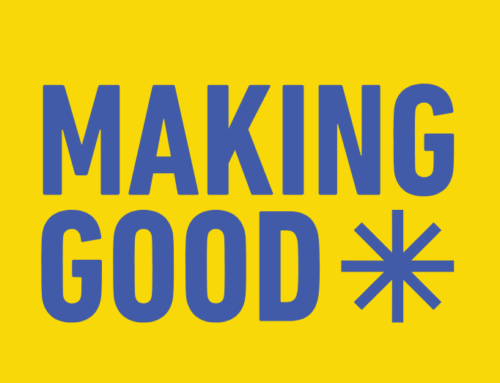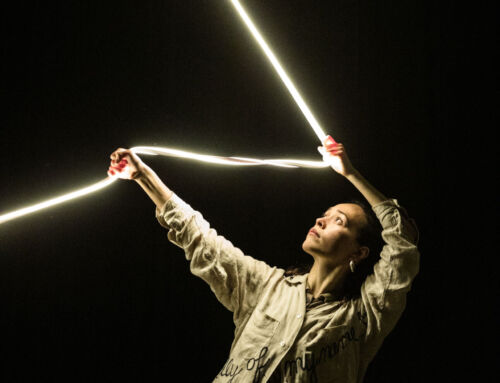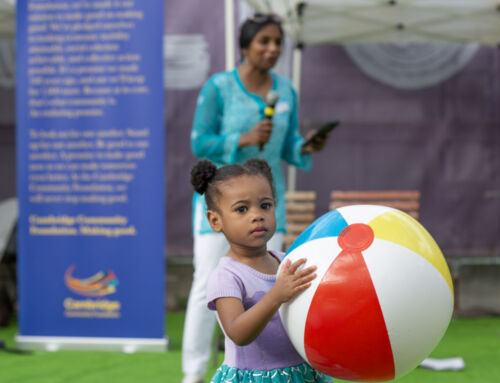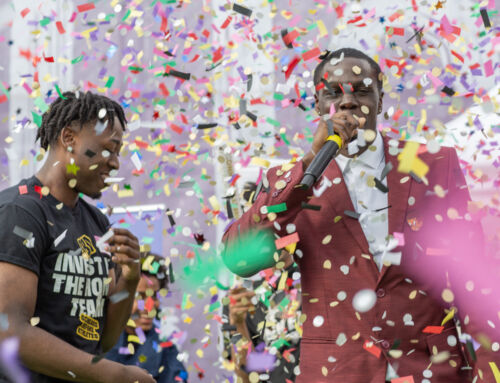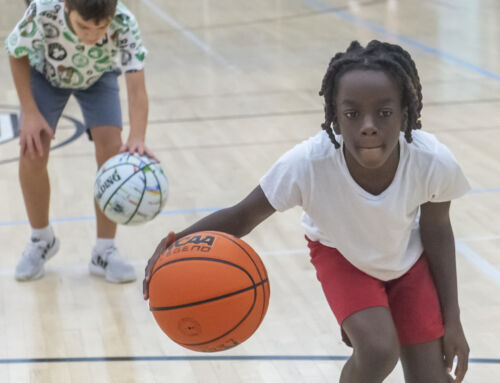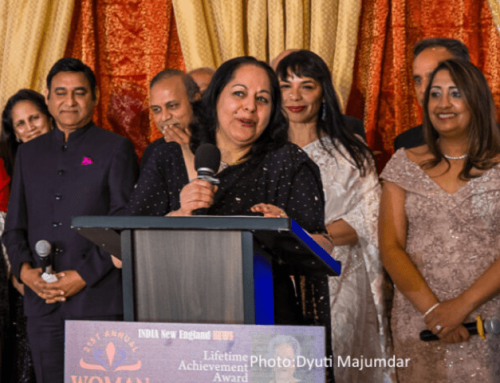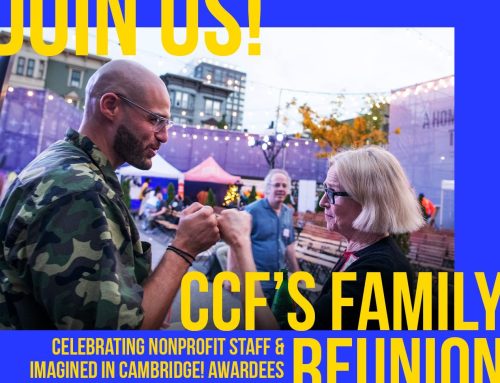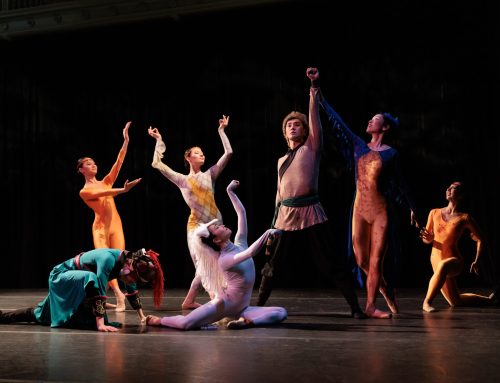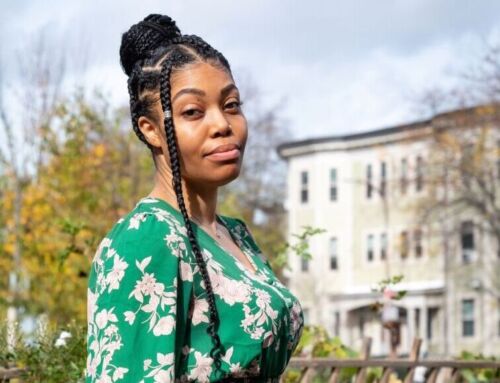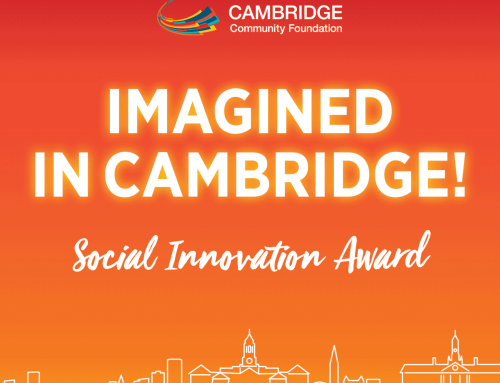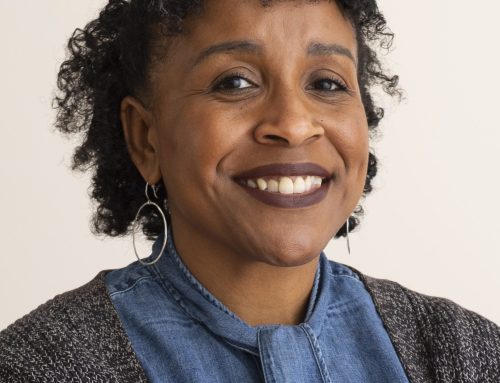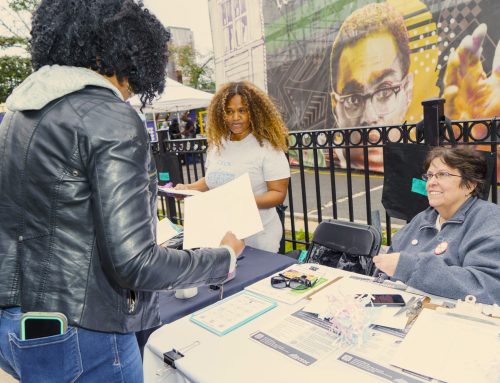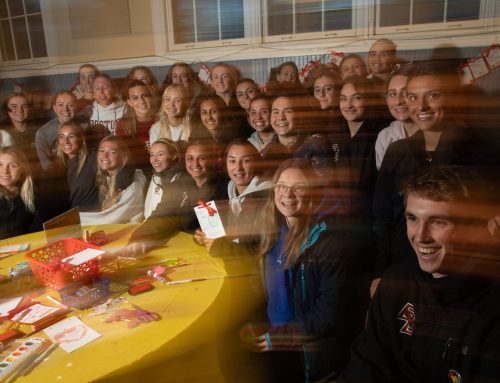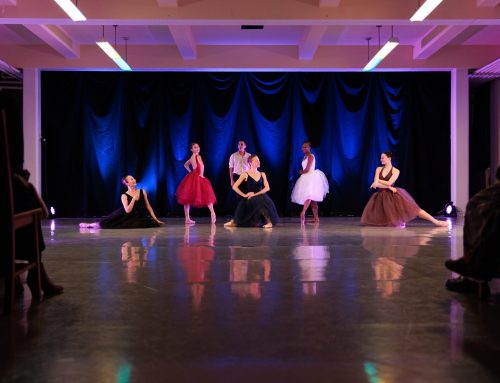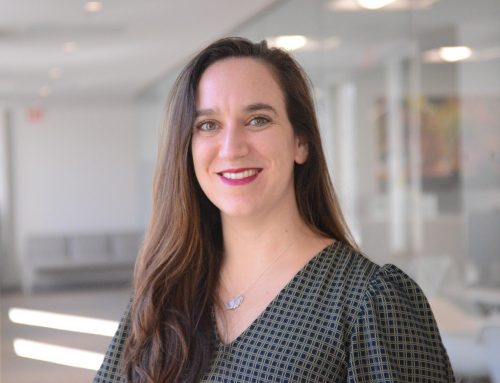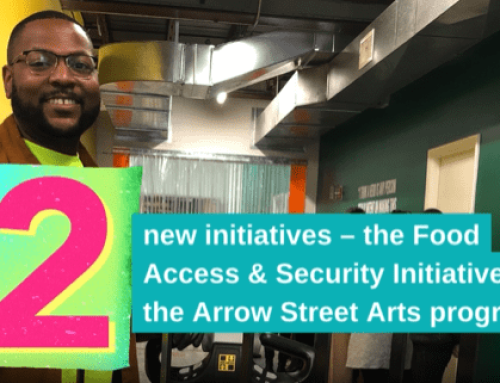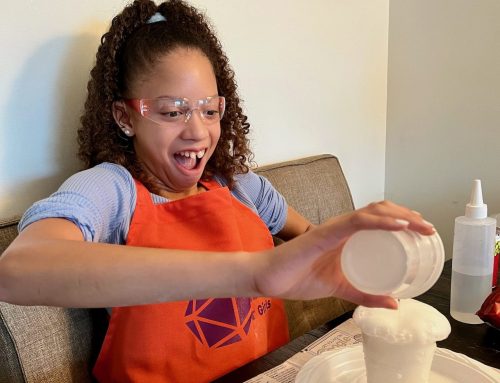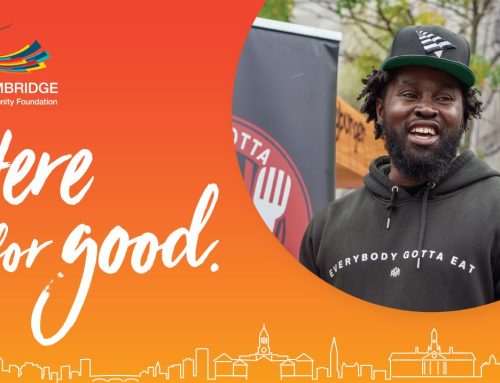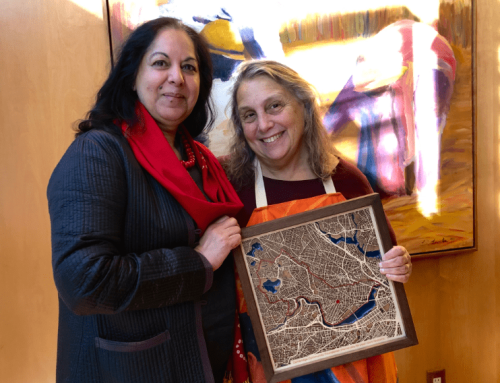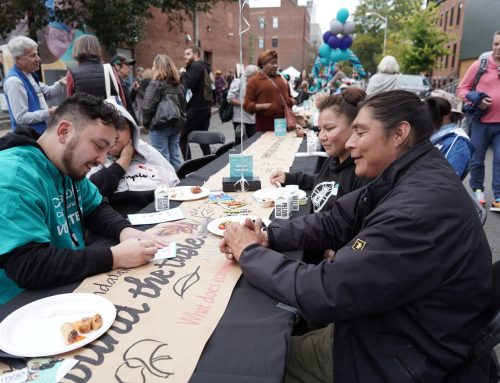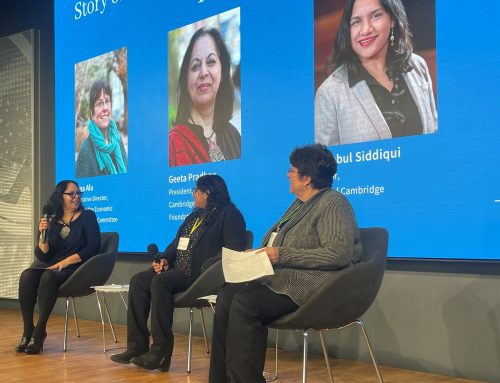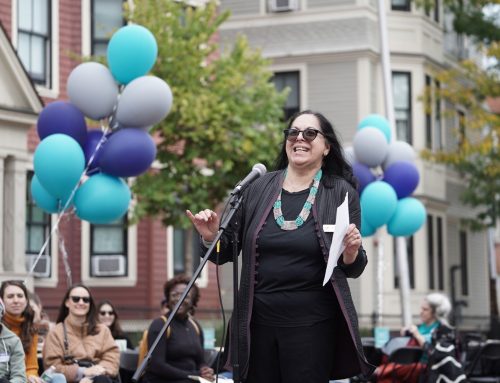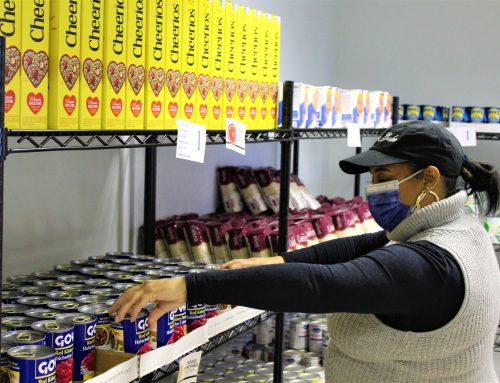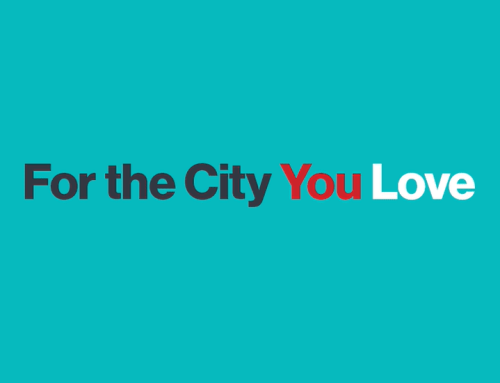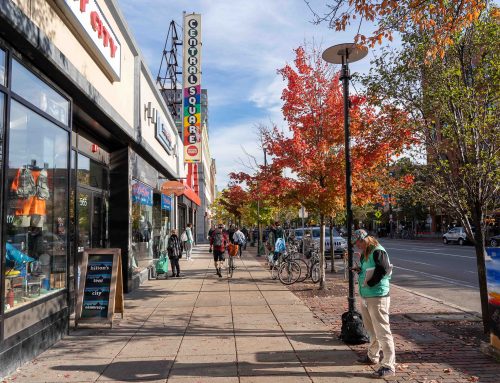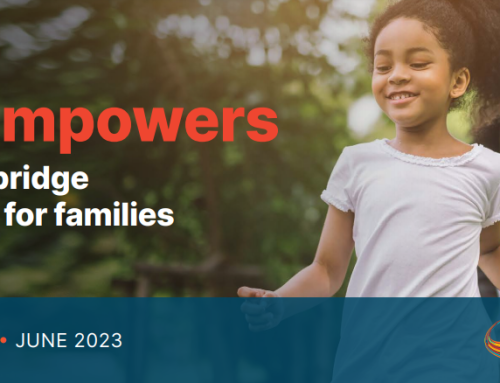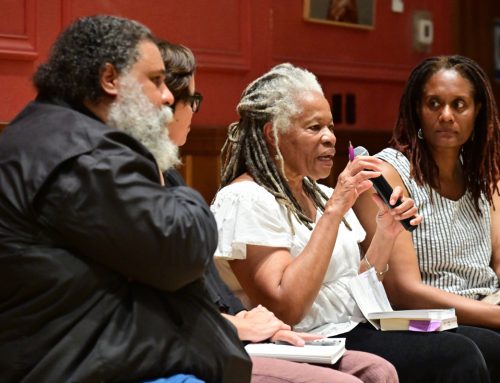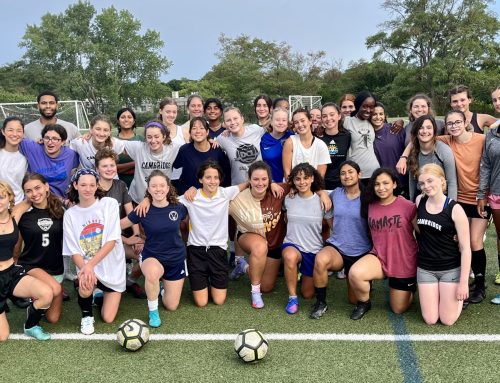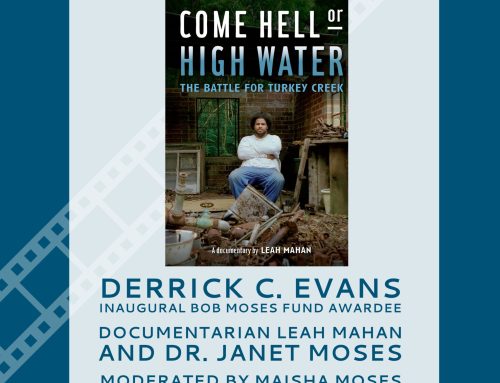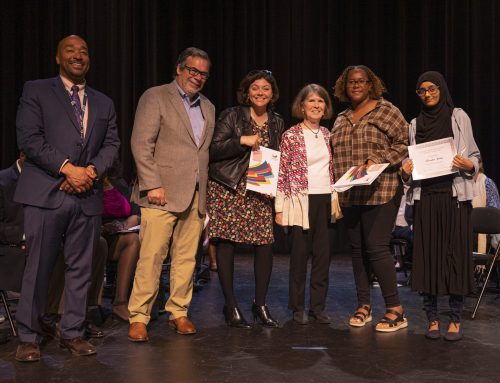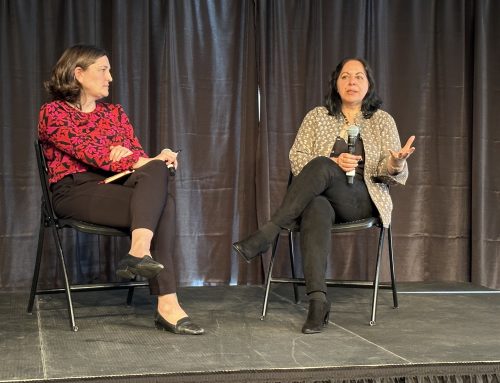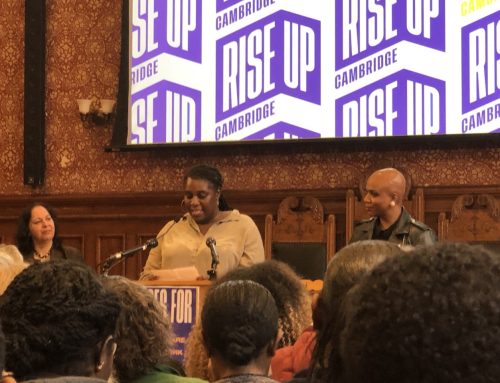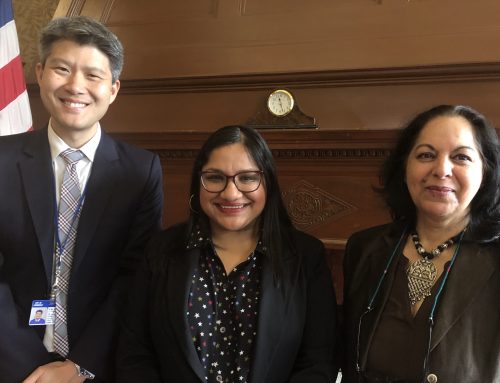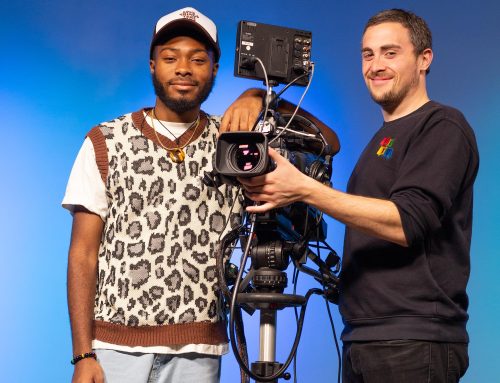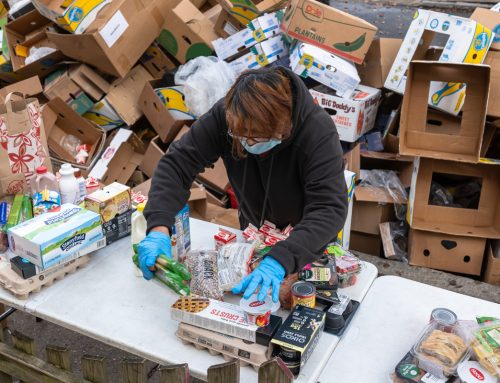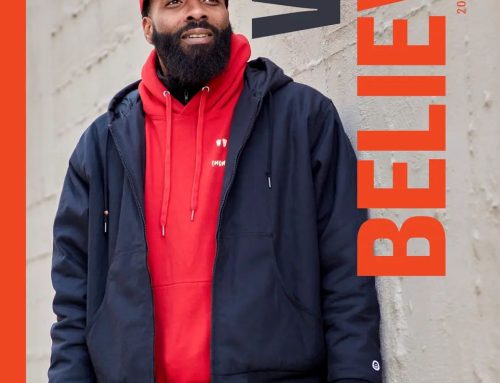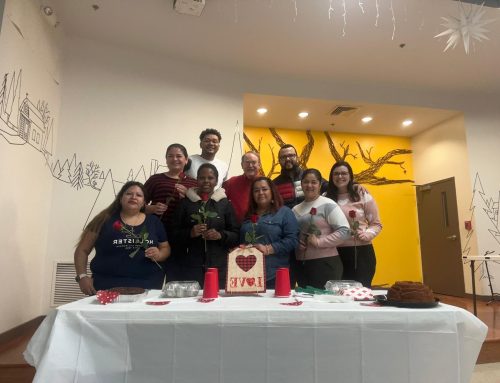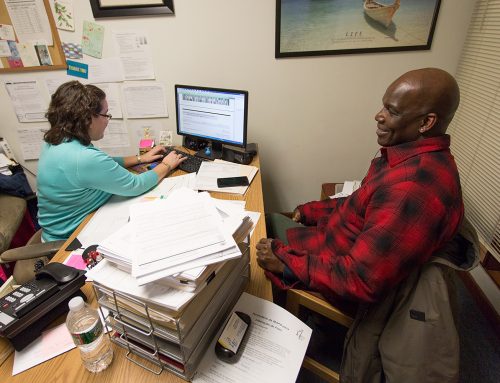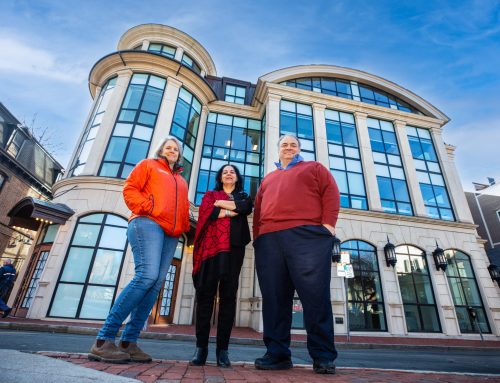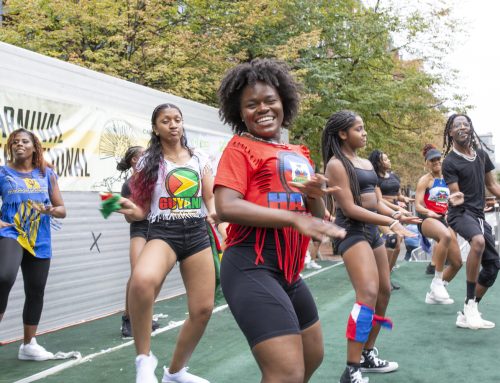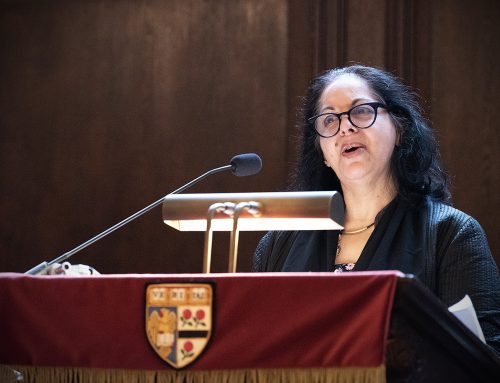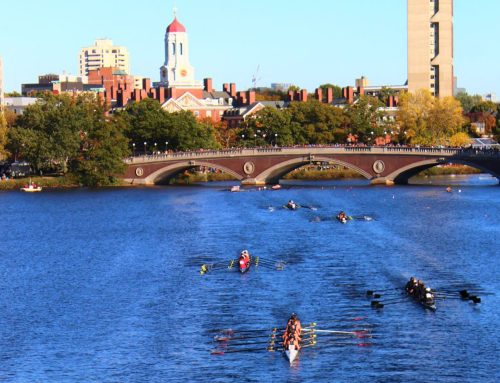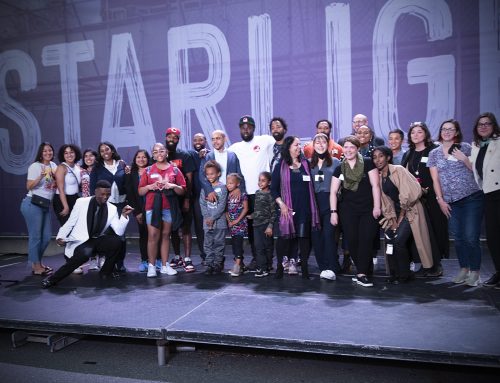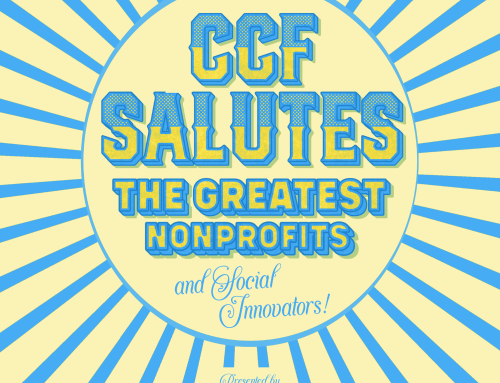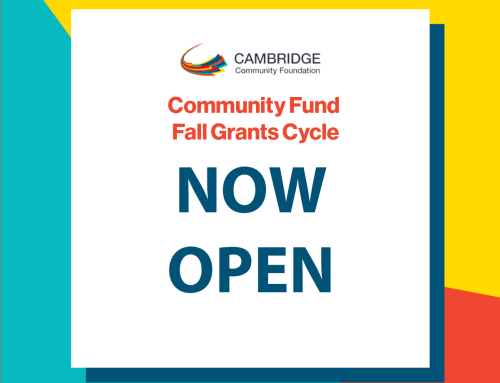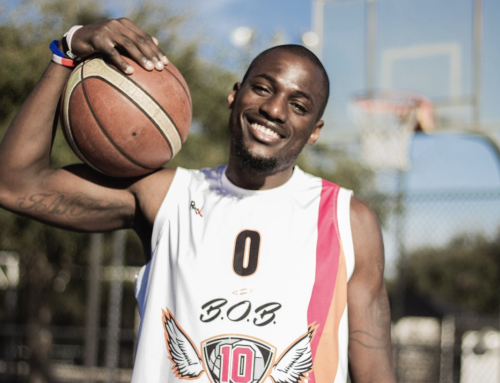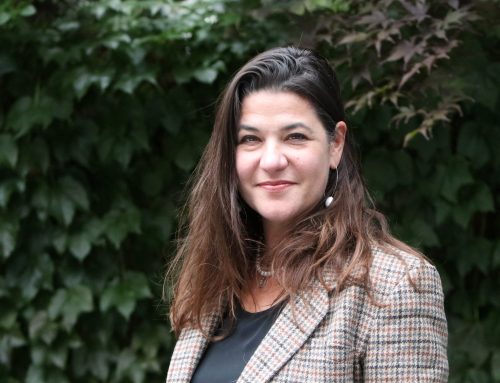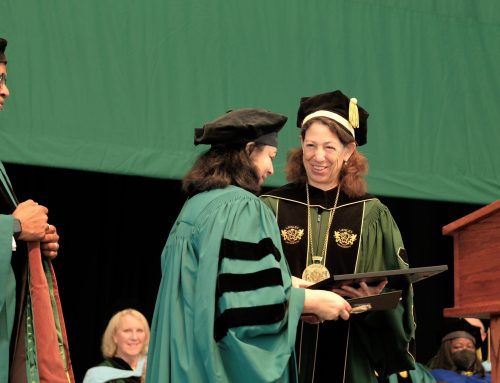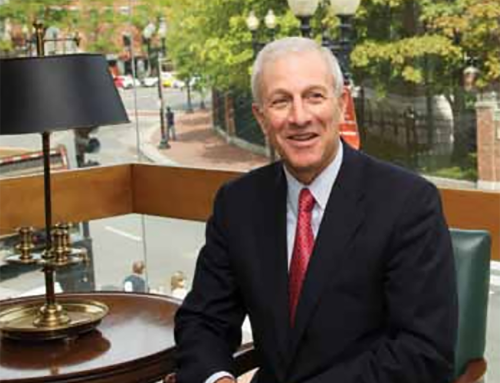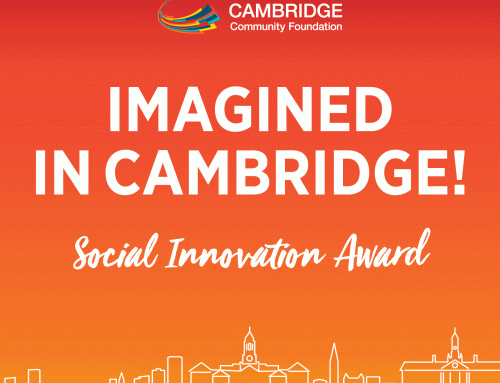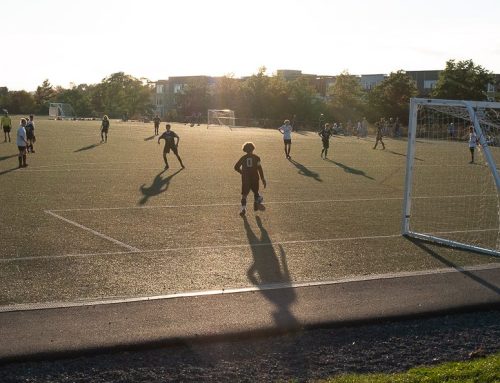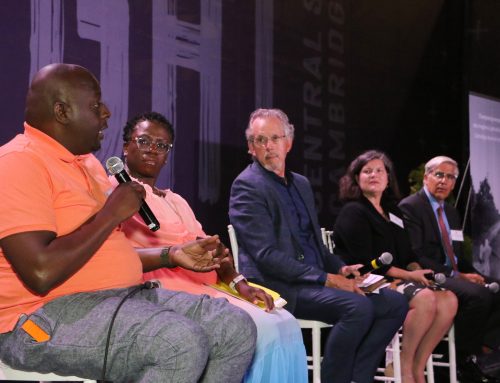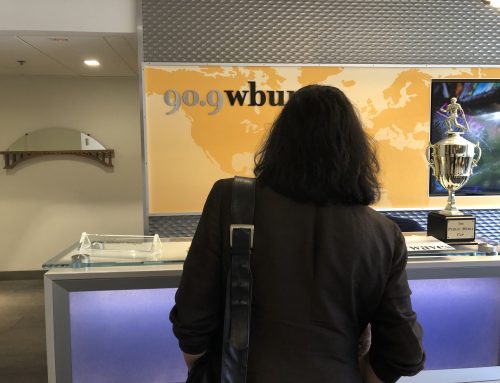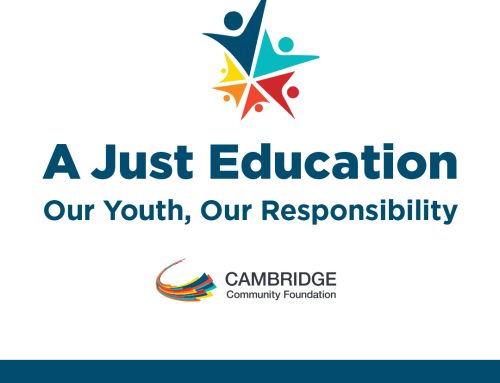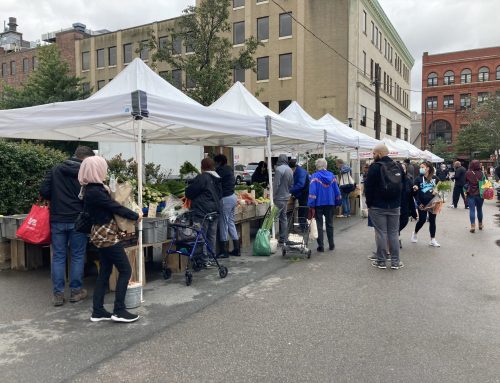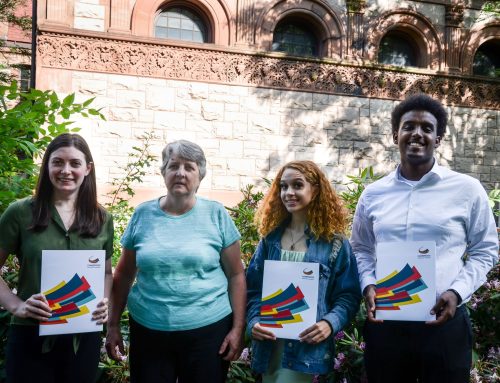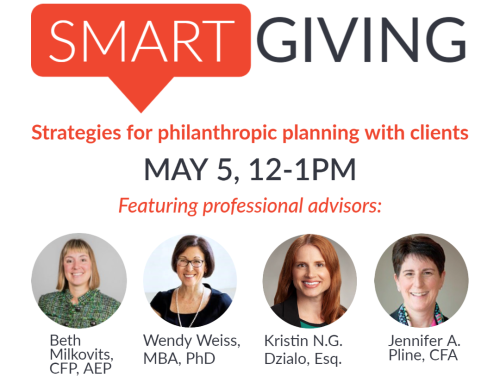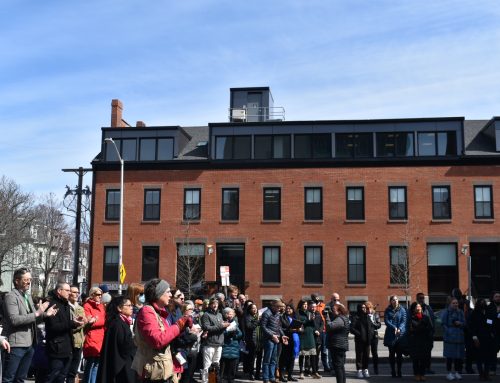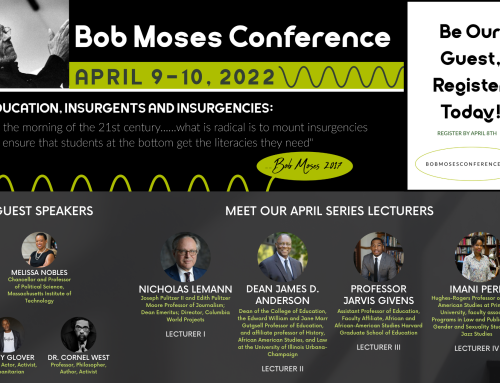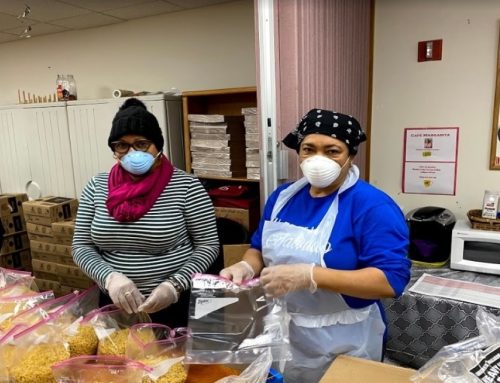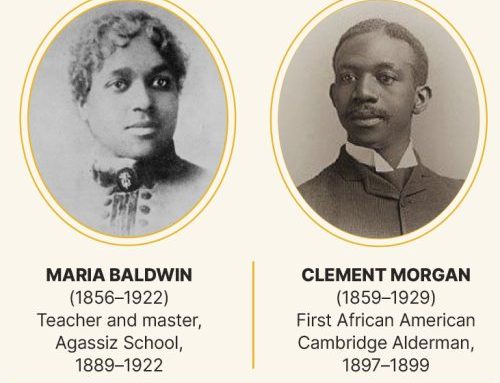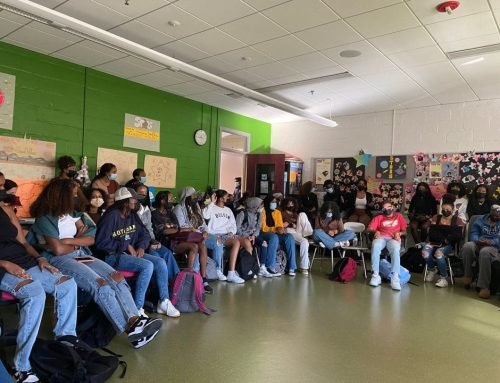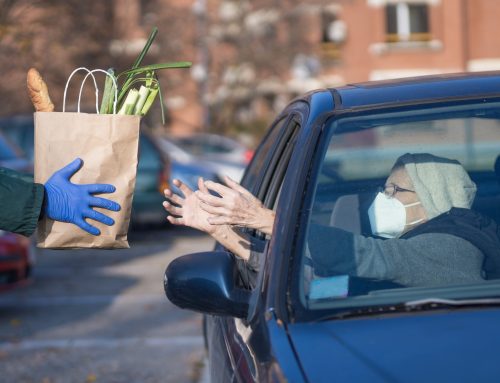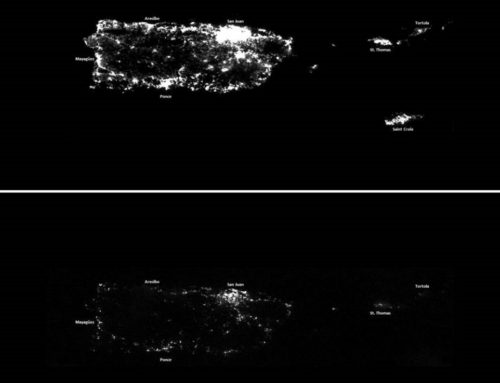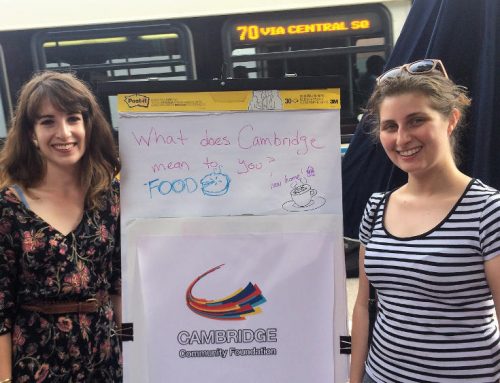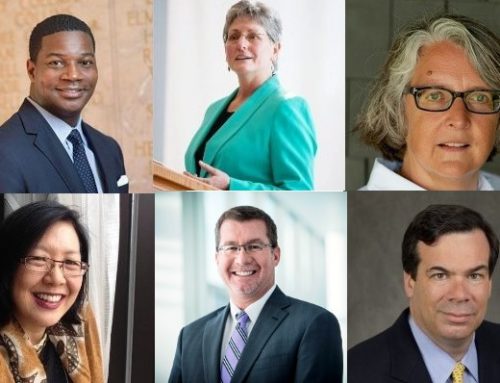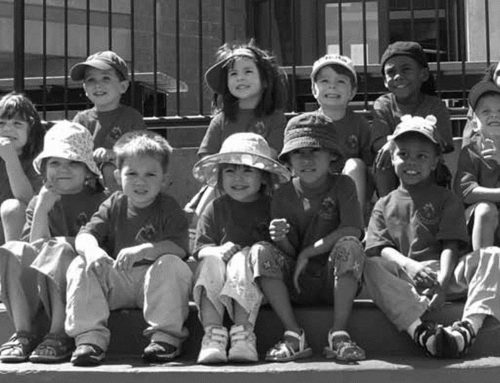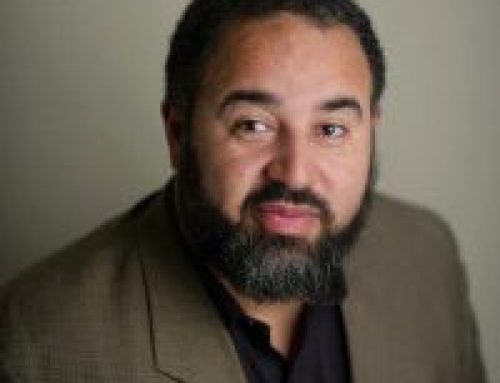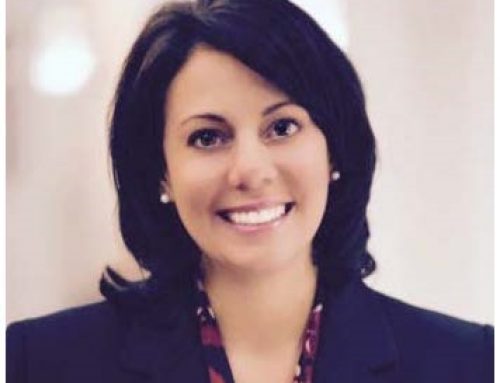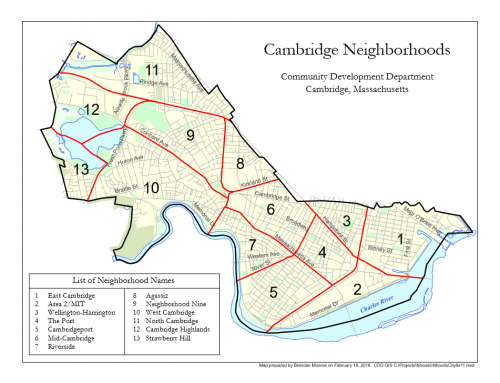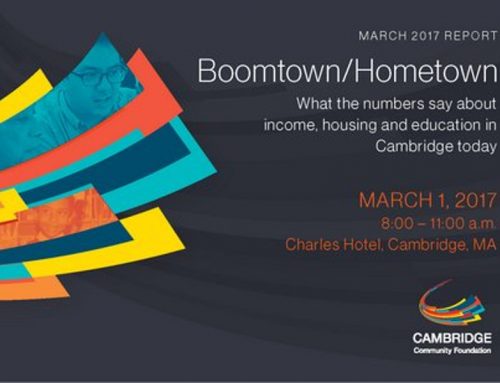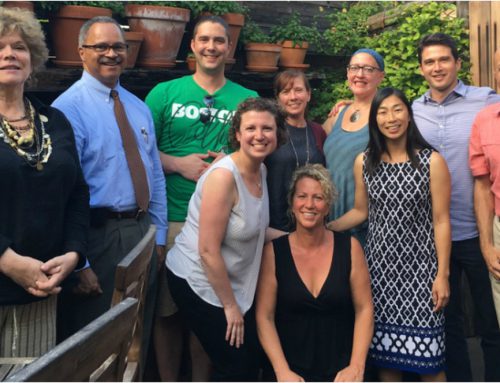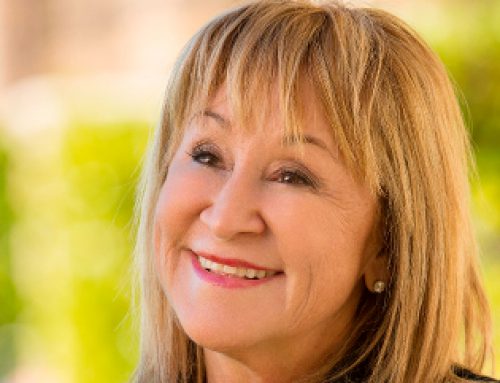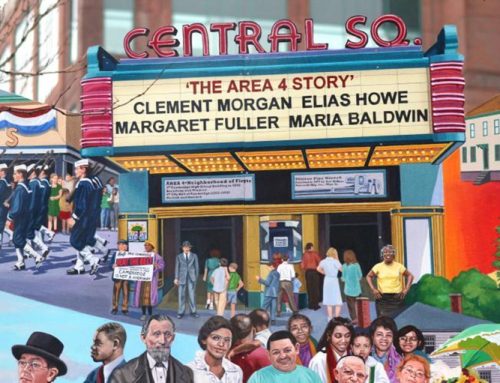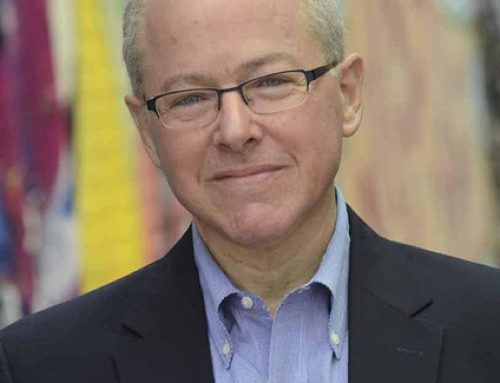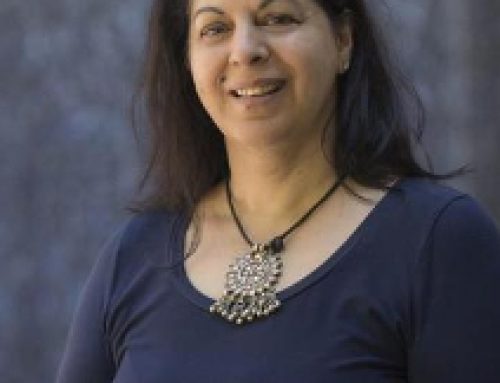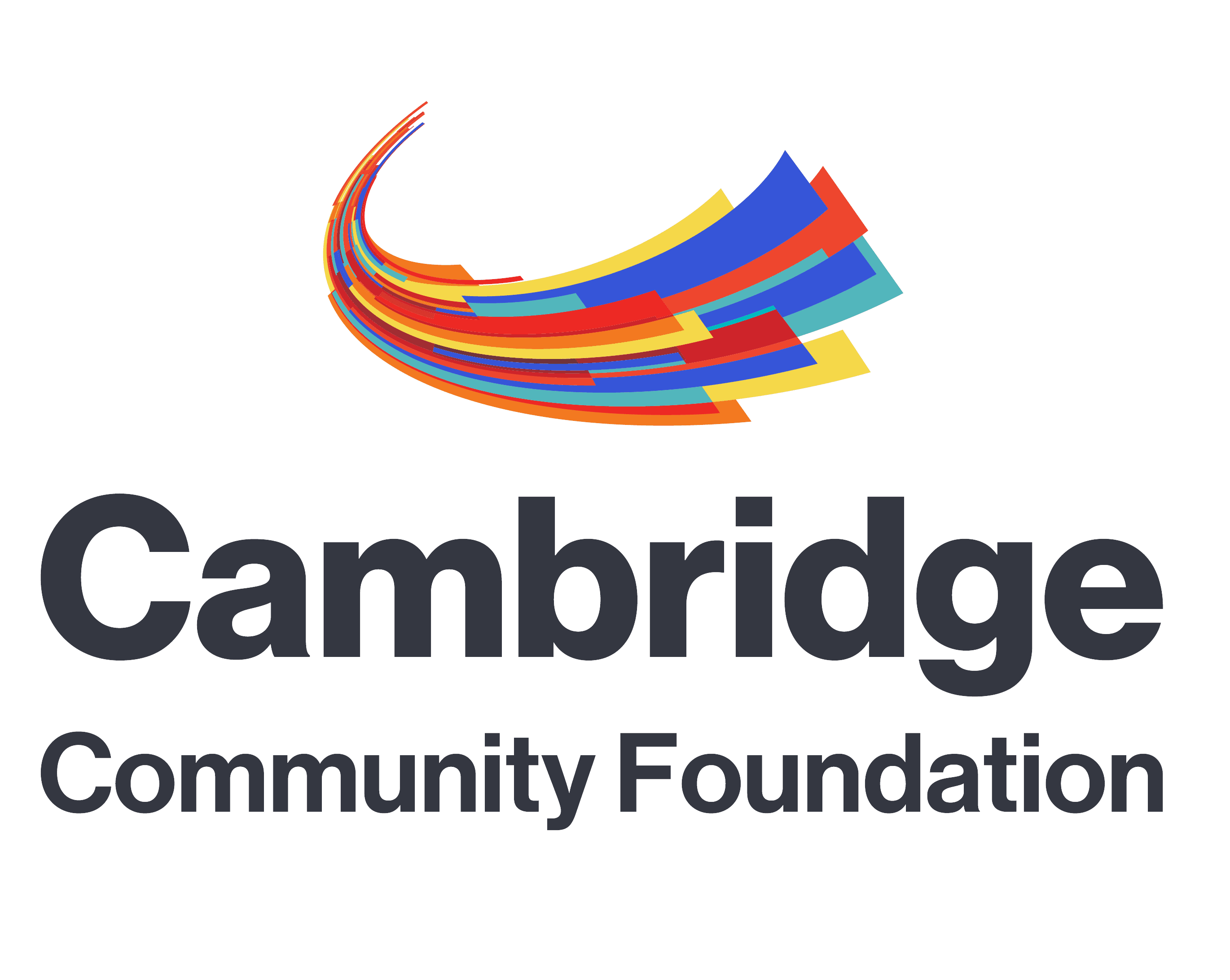Watch Geeta’s commencement speech.
Congratulations, Geeta, and Lesley ’22 grads!
“Planting the ‘money tree'”: An excerpt from Lesley’s coverage of Commencement
Pradhan thanked three people “who helped me become who I am today — my parents and my dear husband. I hope you are watching from up there!” before addressing the graduates.
“Being here today to celebrate you is a great honor for someone like me…I don’t have grandiose stories to inspire you with, but I know that I love my work, I love my community. I feel good when I have made a difference in someone’s life, and I just cannot bear to see human dignity crushed.”
She spoke about the obstacles that graduating students face and the “passion, compassion and grit” that they would need to overcome them.
“I don’t know that there’s a better institution than Lesley University to produce a class of graduates prepared to take on the world’s challenges. Whether you’re pursuing a life in education, arts, or counseling, you’ve already raised your hands to help strengthen our social fabric…The fact that you are here today, poised to step up, gives me great faith in our future — for our communities and the world.”
“I don’t know that there’s a better institution than Lesley University to produce a class of graduates prepared to take on the world’s challenges,” Geeta Pradhan told graduates.
She told a story of how, as a little girl growing up in India, she and her siblings would get a quarter as their weekly allowance. While the others spent theirs immediately on candy and treats, Pradhan planted her quarter in the ground, imagining that a money tree would blossom and grow. Eventually, she forgot about the buried quarters.
“A few years ago, my family was sitting together recounting stories of our childhood and I mentioned the money tree. My brother and sister looked at each other and burst out laughing…you see, as soon as I was done planting my quarter, they would dig it up and split it between the two of them!
“And now you must be thinking, what does this naïve and gullible story have to do with us? To me, this story speaks about the power of imagined possibilities — the hope I carried about what I would do once my tree grew. And in a strange twist of fate, today, as the leader of Cambridge’s Community’s Foundation I am literally planting money in our community — seeding ideas, launching social innovations, investing in programs, fostering the dreams of our city’s youth, of parents who wish to change their futures, of educators, and nonprofits.
“I truly believe that my quarters turned into money trees. It just took a lot longer than I expected.”
Read and watch more from Commencement on Lesley’s website.
Full transcript of Geeta’s address
Thank you, President Steinmayer, Board of Trustees, honorable faculty, family and friends!
Congratulations Graduates of 2022, 2021, 2020! The day has finally arrived.
Being here, to celebrate you, is a great honor for a person like me!
I have spent most of my life just doing what needs to get done, working for equity and justice for everyday people in cities, attempting to create possibility and joy, pushing the rock of hope up a slope that is sometimes so difficult to maneuver.
I don’t have grandiose stories to inspire you with … but I know that I love my work — I love my community. I feel good when I have made a difference in someone’s life, and I just — cannot bear to see human dignity crushed. These are ordinary feelings we all have … and they hold the kernels of our passion and our values.
As I look at what Lesley stands for, and what you, as graduates of Lesley University have chosen as a path for yourselves, I am grateful for this unique opportunity…to share what shaped my dreams, inspired my journey, and honed me for the work I do today.
I grew up in a middle-class household in India and was the youngest of four children. I always had a very active imagination … When we were little, my sisters, brother and I got a quarter each Friday for pocket money. While the others spent theirs on fun and candy, I planted my quarter in the ground … yes, literally planted it,… watered it … imagining that a money tree would blossom and grow and with that I would do all kinds of things … well, winter came, and I forgot about it … years passed, and the memory faded.
A few years ago, my family was sitting together recounting stories of our childhood and I mentioned the money tree. My brother and sister looked at each other and burst out laughing … first I thought they were laughing at my naïve-te, but I soon realized that the two of them had conspired against me … you see, as soon as I was done planting my quarter, they would dig it up and split it between the two of them!!
And now you must be thinking, what does this naïve and gullible story have to do with us … to me, this story speaks about the power of imagined possibilities – the hope I carried about what I would do once my tree grew. And in a strange twist of fate, today, as the leader of Cambridge’s Community Foundation I am literally planting money in our community – seeding ideas, launching social innovations, investing in programs … fostering the dreams of our city’s youth, of parents who wish to change their futures, of educators, and nonprofits.
I truly believe that my quarters turned into money trees. It just took a lot longer than I expected.
All possibilities grow out of dreams. The possibility of a dream coming true is what makes life interesting. So, I would suggest: look back at your dreams, the ones you had when you were younger, and see if you can find the thread connecting those dreams to who you are today or who you aspire to be.
Dreams are powerful … they fuel our imagination, and imagination drives innovation. They help us see solutions where others see problems.
And I find inspiration in the dreams of others. A great joy in my job is to see the dreams of other people come to life. Here are two simple but powerful ideas that I found moving and that made me feel connected to other people.
I love this one: Three friends – Lonnell Wells, Jesse Castillo and Sean West – were deeply affected by the murder of Gorge Floyd. Feeling helpless, they wanted to move beyond protest and do something to heal their community. They were good with their hands… working with what they had, they did what was in their power. So, they started refurbishing donated bikes, and giving them away for free … to the kid who doesn’t have a bike to ride with their friends, the ex-con who just got a job but doesn’t have the money for transportation.
That simple idea has become Cambridge Bike Give Back.
Such a small gesture – a free bike – can spread joy or improve someone’s chances in life.
The other is a story that not only touched my heart but also so many people in Cambridge. Imagine being a 10-year-old girl and being upset by the bullying and trauma you see around you during the pandemic. Young Aviana proposed a simple idea to her school, to give kids a safe place to share their stories and have fun. Her program Heart Jr. uses peer-led circles to deal with social-emotional health.
Now, where does a ten-year old find that compassion and imagination?
I’ve heard Aviana speak about her passion … If a ten-year-old can do this, so can all of us.
These stories about ordinary people doing extra-ordinary things share three things – passion, compassion, and grit… I would guess that those are qualities with which you are clearly familiar.
I don’t know that there’s a better institution than Lesley University to produce a class of graduates prepared to take on the world’s challenges. Whether you’re pursuing a life in education, arts, or counseling, you’ve already raised your hands to help strengthen our social fabric. And you pursued your journeys under the toughest of circumstances, amidst a global pandemic and the most divisive times you will see in your lives. The fact that you are here today, poised to step up, gives me great faith in our future—for our communities and the world.
I’ve learned that optimism is a powerful force and in tough times we need optimism to flourish. This is your time … and I hope you will find that optimism, as you take your next steps.
Your education has prepared you for a path toward a gentler, kinder world – those attributes define both Lesley and you as professionals, thinkers, future leaders, educators, healers and change makers.
Yes, science and technology have changed our world. We have found cures for deadly diseases and viruses … but greed and unfettered development … without values and without imagination for the good of humanity, have also given way to a world ravaged by the fury of climate change, of stunning income inequalities, of racial and economic injustices, of prejudice, of war and strife in Ukraine, Syria, Afghanistan … and even my beloved little hometown…the beautiful valley of Kashmir at the foothills of the Himalayas.
There are big intractable problems all around us – failing school systems, a mental health crisis, and persistent poverty — even in a city as great as Cambridge. But where there are problems there are people, such as you, driven by a passion and dreams to make life better. That’s what we do at the Cambridge Community Foundation, a foundation of and for all of Cambridge. Yes, we have money to make grants, but our true power comes from deep partnerships and networks in the community, with Universities like Lesley, with inspired non-profits, with people who use their lived experiences to find and guide solutions to social problems.
I say, find those people making a difference and make them your partners, bind them together with the values you care most deeply about.
I first came to my values through a man I saw every morning on my way to school, when I was a child growing up in Kashmir.
This man made his living doing work none of us would ever imagine doing.
Day after day, he collected human waste in large pots and carried it on his head to the dump. We called him Jamadar Sahab … loosely translated as: Servant Sir. … Yes, I know … it’s an odd combination of terms – calling someone servant/sir! In the same breath?
His poverty showed through his tattered clothes.
But Jamadar Sahab rose above his menial, demeaning work. His job did not define him, nor did his wretched poverty. He carried himself with dignity and grace … as though forcing you to contend with his humanness. I saw the way he treated people with kindness, compassion, and respect … his humanity stripped away the differences, forcing others to recognize the dignity that inherently defines all of us as human beings.
Jamadar Sahab left an indelible impression on me. More than 50 years later, the memory of his kind, brown, gentle eyes … and the respect he commanded … still guide me. What I learned from him pushes me, challenges me, it is my guiding light.
He taught me the importance of dignity… the intrinsic, individual, human value in which are embedded principles of – respect, justice, integrity, authenticity. If you believe in human dignity…these important concepts will follow.
He taught me empathy – the ability to shift my perspective from observer to one experiencing the situation – getting into his shoes to understand that the lack of money or his demeaning profession, did not define him. The empathy I gained from that experience has forever changed the way I look at poverty and the power of wealth versus the power of goodness.
Life is full of magic and surprises!… and one never knows from where or from whom the inspiration can come. So, look for your North Star. And as you take this next big step in life, I want to leave you with a question … What is the dream, the ‘personal legend’ you wish for yourself? How will your education feed the passion that brought you to Lesley to create a more just, a more humane world? What will it take?
Thank you!

